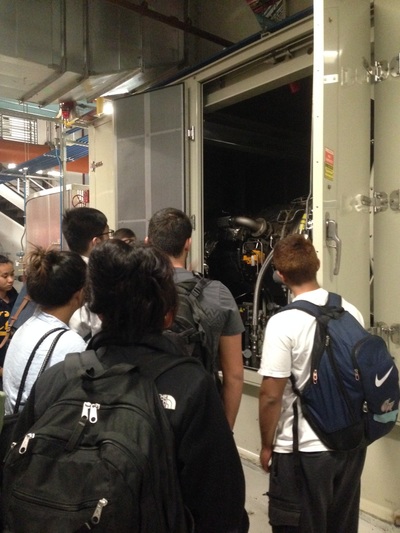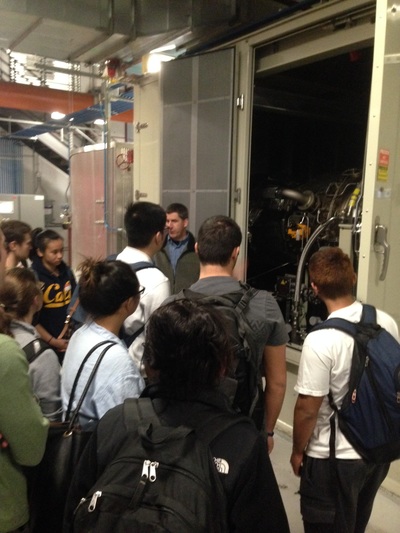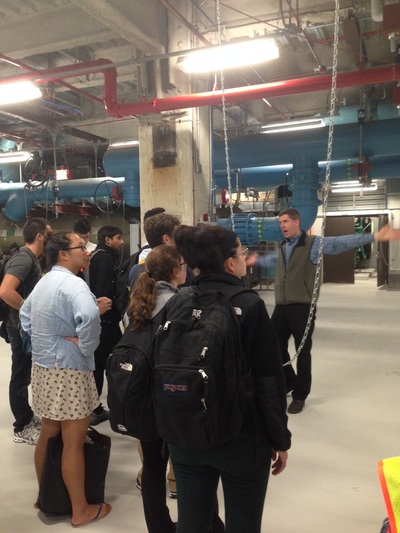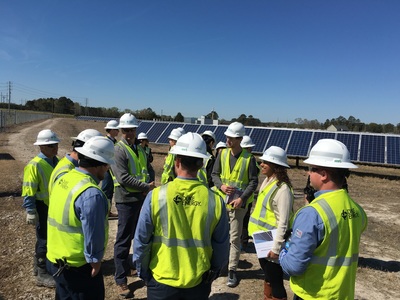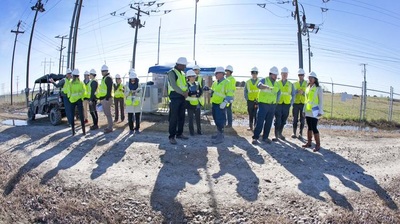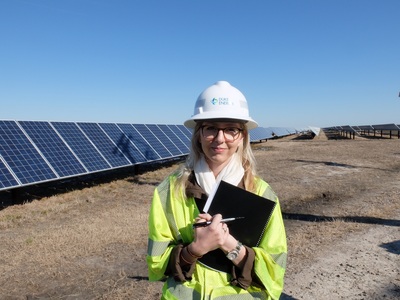International Business of Sustainable Energy
(SEAS 6800)
This course is an interdisciplinary collaboration between GW’s School of Business and School of Engineering & Applied Science that aims to build a curricular bridge between business and engineering in order to give future energy professionals the interdisciplinary skills and perspectives required for careers in the sustainable energy sector. The course will bring together students from multiple disciplines to learn about energy technologies and perspectives, international business, and consulting methodology. To explore the varied global contexts across the energy sector, students will compare and contrast the energy perspectives of two countries, the United States and Sweden. The course will incorporate theoretical frameworks and topics relevant to international business, for example, innovation management across countries, impact of the regulatory environment, as well as clustering effects.
After learning core energy and business topics, interdisciplinary teams of students will partner with real clients in Sweden to complete sustainable energy sector consulting projects. The Swedish firms will present an energy technology issue or problem to the students, which relates to the firms’ impending or ongoing international expansion. Students will work in teams to research new market opportunities for the firm and propose their recommendations upon conclusion of the course. Students will meet virtually with representatives from the client company to discuss the parameters of the consulting project. In most projects, students will help their client identify strategic opportunities to enable them to successfully enter into or expand in the US market.
Find out more and apply here!
This course is an interdisciplinary collaboration between GW’s School of Business and School of Engineering & Applied Science that aims to build a curricular bridge between business and engineering in order to give future energy professionals the interdisciplinary skills and perspectives required for careers in the sustainable energy sector. The course will bring together students from multiple disciplines to learn about energy technologies and perspectives, international business, and consulting methodology. To explore the varied global contexts across the energy sector, students will compare and contrast the energy perspectives of two countries, the United States and Sweden. The course will incorporate theoretical frameworks and topics relevant to international business, for example, innovation management across countries, impact of the regulatory environment, as well as clustering effects.
After learning core energy and business topics, interdisciplinary teams of students will partner with real clients in Sweden to complete sustainable energy sector consulting projects. The Swedish firms will present an energy technology issue or problem to the students, which relates to the firms’ impending or ongoing international expansion. Students will work in teams to research new market opportunities for the firm and propose their recommendations upon conclusion of the course. Students will meet virtually with representatives from the client company to discuss the parameters of the consulting project. In most projects, students will help their client identify strategic opportunities to enable them to successfully enter into or expand in the US market.
Find out more and apply here!
Nanotechnology Devices & Systems: How They Are Made, Measured, & Monetized
(SEAS 4800, CRN 48270)
This is an interdisciplinary seminar course designed to provides students from any major with an introduction to nanotechnology. Dr. LeBlanc co-teaches this seminar with Dr. Sorger (electrical & computer engineering) and Dr. Shittu (engineering management & systems engineering). Students do not need prior experience or prerequisites. The 1 credit hour course is a Green Leaf course and counts towards the GW sustainability minor.
Course topics include:
This is an interdisciplinary seminar course designed to provides students from any major with an introduction to nanotechnology. Dr. LeBlanc co-teaches this seminar with Dr. Sorger (electrical & computer engineering) and Dr. Shittu (engineering management & systems engineering). Students do not need prior experience or prerequisites. The 1 credit hour course is a Green Leaf course and counts towards the GW sustainability minor.
Course topics include:
- Nanoengineered devices and materials
- Micro- and nano-fabrication tools
- Cutting-edge characterization techniques
- Social, economic, and policy factors in nanotechnology development
Energy Systems Analysis
(MAE 6262)
Students in this course explore the technical, economic, and policy factors impacting the global energy outlook.
Students in this course explore the technical, economic, and policy factors impacting the global energy outlook.
Thermal Systems Design
(MAE 4149)
Senior undergraduates design thermal systems for electronics cooling, solar water heating, building climate control, and electricity generation.
Senior undergraduates design thermal systems for electronics cooling, solar water heating, building climate control, and electricity generation.
Nanotechnology in Energy Applications
(MAE 6291)
Created by Dr. LeBlanc in 2014, this course is an investigation of the role nanotechnology plays in evolving energy applications such as thermoelectrics, photovoltaics, and batteries. Students investigate relevant questions: What are the fundamental energy physics? Why is the nanoscale significant in energy applications? How does nanoengineering affect energy system performance? How do interdisciplinary factors, including technical, economic, and policy considerations, affect the impact of nanotechnology in the energy field?
Created by Dr. LeBlanc in 2014, this course is an investigation of the role nanotechnology plays in evolving energy applications such as thermoelectrics, photovoltaics, and batteries. Students investigate relevant questions: What are the fundamental energy physics? Why is the nanoscale significant in energy applications? How does nanoengineering affect energy system performance? How do interdisciplinary factors, including technical, economic, and policy considerations, affect the impact of nanotechnology in the energy field?
Students participate in a project titled "Living Lab to Study Solar Farms" funded by the Duke Energy Renewables Innovation Fund. Students create case studies investigating the technical, economic, and environmental issues associated with solar farms. In March 2016, students got to visit a Duke Energy Renewable solar farm and the remote monitoring center in North Carolina.
| Nanotechnology in Energy Applications Syllabus | |
| File Size: | 17 kb |
| File Type: | |
